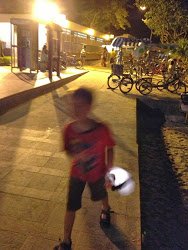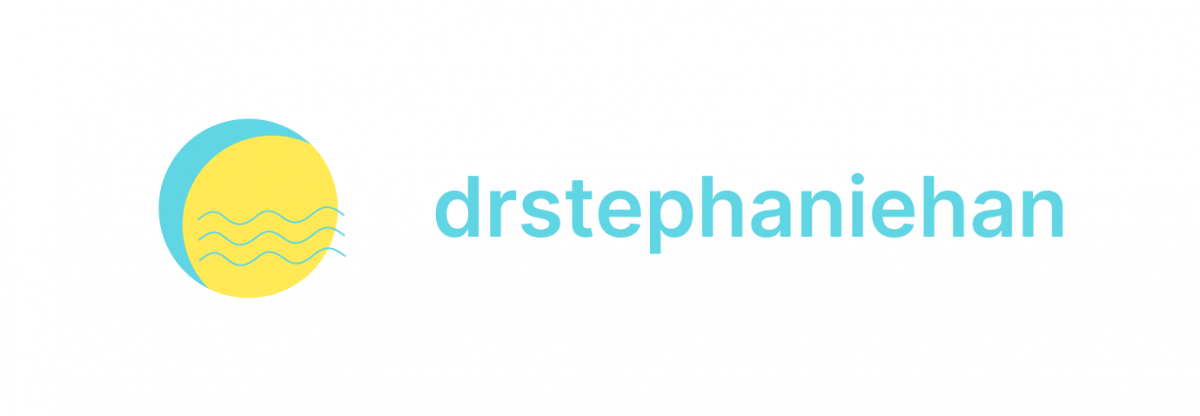 To continue this creative process explication of poetry and writing, I’ll be going through the poems I wrote and discussing the background a bit. This is really to show anyone interested in poetry how some poems are constructed. I’m not big on “oh it’s this magical thing…I wait and boom from the heavens, I feel words rushing through me”. If that’s you, more power to you, and that’s great. I get it. But I’m a teacher and believe that words can remake people’s lives. So I am going to break down the process a little so that anyone can try writing and not be intimidated by the creative process.
To continue this creative process explication of poetry and writing, I’ll be going through the poems I wrote and discussing the background a bit. This is really to show anyone interested in poetry how some poems are constructed. I’m not big on “oh it’s this magical thing…I wait and boom from the heavens, I feel words rushing through me”. If that’s you, more power to you, and that’s great. I get it. But I’m a teacher and believe that words can remake people’s lives. So I am going to break down the process a little so that anyone can try writing and not be intimidated by the creative process.
A version of this poem “Building the Great Wall” appeared in Panorama: The Journal of Intelligent Travel. The garden and the wall in Mui Wo had become a metaphor for the complexities of a collapsing marriage and living as an expatriate in Hong Kong. As the title of my poetry collection indicates, it was often assumed when I was living there that I was Chinese (I must have a pan Asian bog standard face, what can I say?), but while Asian life was while somewhat familiar given my own ethnicity, Hong Kong was also a challenge given my feelings about patriarchy, nation, and the pressure of capitalism.
Disney here in the poem refers to the building of Hong Kong Disneyland which I once researched while working on a story. The construction of that project further killed off the lone pod of sousa chinensis, the dolphin that has the distinction of symbolizing Hong Kong. Since it appears that all effort has been made to kill it off given pollution and prioritization of construction it makes no sense. Then again, the bald eagle was the US symbol and hey, that almost went extinct too. It appears killing off important wildlife may be a habit of nation-building. Perhaps it makes sense given the people of Hong Kong are valiantly struggling to speak their minds and be free as those in Beijing are silencing them. There are always parallels in the natural world of whatever is going on or vice-versa.
The center not holding–that’s the William Butler Yeats reference to The Second Coming.
Pictograms–this refers to the writing of characters. There is no Chinese alphabet. I’m not sure how this might link to widespread literacy and thus the construction of a modern nation and a free press, but given you must spend an inordinate amount of time memorizing how to read and write, there is something to be suggested about what this may mean for the vast majority of those who are illiterate. There is pinyin, but who knows. This is for the people there to decide. I’m a pro-alphabet kind of gal. Alphabets warm my literate heart and Korean, I’ll be blunt, has an awesome easy alphabet that anyone can memorize really quickly. There’s none of that silent E nonsense in a Korean alphabet. I’m for ease with reading. This is not possible with Chinese.
Tiger cubs. During the time I was there was this huge uproar about the Tiger parent mentality which I think in retrospect, is nothing short of shallow and limited. I’m for knowledge acquisition and curiosity, but there is a direct link here to saving face and I’m not a big fan of that. I can understand how we all get roped into this as parents. But I admit my parenting really shifted, and far more so after the divorce. This Tiger stuff seems really silly and limited to me now. We all die. And so what. And then what. Blue ribbons do not stop you or your family members from death!
Oh, the opening about digging a hole to China. Back in the ancient days of oh, the 1970s, people would make jokes, like oh, you are digging a hole to China! Gosh darn that is hilarious…hahaha. Golly, that hole is so deep! The phrase worked for the poem, I thought. I like there to be a light heartedness at times.
Regarding ashes and falling down, I thought about the nursery rhyme ring around a rosy which has to do with the Black Plague and has nothing to do with gardening, but somehow the garden did become connected to death or an end. Because in the end you might have an edifice or a symbol, like a garden, but it means absolutely nothing if there is nothing inside of the edifice. These material symbols are simply that–very temporary. Don’t want to get all Ozymandias on you, but monuments, buildings, stuff that is material is temporal. I repeat: WE. ALL. DIE.
The building of the wall involved borrowing money and then trying to get someone in the village who would build it given the village headman’s control over the building works. Like many places in the world, there are a few people with a monopoly who then control the market and make it very difficult for construction to proceed. I made friends with the parent of my child’s friend who was then married to a man who was unafraid of building the wall without the consent of this village headman. This village headman was really a pain and not a nice person. I don’t believe that anyone really likes him. He’s still the headman. How can you recognize him? He wears big glasses and adapted a Bruce Lee haircut for awhile. He also biked around with an umbrella in the sun, rather Victorian, and given he was super tan it looked a little weird, what can I say? The main thing is that most people didn’t like him. So I got introduced to my kid’s friend’s dad Big Black Boss. BBB worked with another man Uncle Pork Chop. Uncle Pork Chop and Big Black Boss got the job done. When a few kids laughed at the name Uncle Pork Chop my kid got really pissed off. Uncle Pork Chop also got skinny during the time we knew him so the name didn’t fit after awhile. To conclude, the wall got built.Yet while the wall was raised, nearly everything regarding the interior of what was inside the wall and house was falling, crumbling or collapsing.
And what was it that was being attempted by trying to erect a wall? Staking a claim to permanence? Protection? Money? A nice house and a garden mean nothing if there is nothing to hold the center. The garden became a fanatical obsession for my ex who would spend the entire weekend sifting through the sand cleaning it out for any particles of glass or garbage. It was supposed to be because the garden was an investment–like the house. Everything got boiled down to money. It was more than an action to save money, it was really an arena to exert control.
When my child was small he would attempt to go out into the heat and dig for awhile, imitating his father. Later, he would watch from inside the glass window. It was painfully isolating and the remembrance of this is very stark. The Kid and I would sit inside most of the day, the two of us, in what was a kind of forced togetherness because in reality, we were trapped in the house while the ex worked on the garden with absolutely no interest in what we were doing inside at all. My son was told his father wanted to spend time with him, but truthfully, he spent most of the weekend watching his father from the glass window. When you are a young child you do not want to garden. You want to pretend you are a superhero and maybe do about 10 minutes of gardening, but definitely not with an adult who yells if you are messing anything up.
Myself, I was bored out of my skull and had zilch interest in gardening in the heat with carpal tunnel. At one point I tried to discuss Voltaire’s idea of the garden and how myself and the child were actually the garden that needed tending, hoping that the text reference would kick in some kind of critical analysis about the situation, but to no avail. The end result was a beautiful garden, completed a few months before a terrible divorce.
Interestingly enough, now in Hawai’i I have been doing a bit of gardening. I do this because it is fun to see the plants grow. It’s not humid. It’s not about an investment. I don’t keep anyone hostage in my house and expect them to look at me while I garden lol. My carpal tunnel is better. So yes, the self was cast aside to build the wall in the past, but now, I realize, there are no walls.
Did you know that you get to call yourself a Great Man if you visit The Great Wall? It should be updated–Great Woman. And add to that if you manage to survive the building of any wall, you deserve the title.
Building The Great Wall
Selves were cast aside to build
The Great Wall.
Boulder after boulder, year after year.
Digging a hole to China killed us.
Nuance foiled. Poetry lost.
Foul water gallon gulped.
Buried.
Unearthed: a pig’s head, a bicycle,
the rubble of new lives.
Dollars grabbed on bruised knees.
Foreign bodies.
Poison shot through our veins.
We screamed. Our child wept.
The doctor said, it was no emergency,
we had air conditioning.
Great Walls rise on sorrow’s wrinkles,
tiger cub egos, pictogram drama.
Slavery?
An emperor’s whim.
Climb to be a Great Man?
For what does a Woman ascend?
Astronauts spoke, myths remain:
The Great Wall snakes before the moon.
A Middle Kingdom center never holds.
Great walls are sandy tombs.
Extinction a Disney sea
of pink dolphins, a lost phoenix
with shellacked wings.
Sailors fear the pancake edge.
Barbarians lurk behind the wall.
Yet Great Wall desires scale link by link.
Sewage lines yield smoggy fevers,
frangipani strokes our cheeks,
connects pipes to dreams,
and the corpse rot of papayas.
We watch passionfruit ripen
as purple stabs our hearts.
A trick, a brick, a boulder, a trap.
We crumble, tumble to our ashen end.
Buried in greatness, we all fall down.

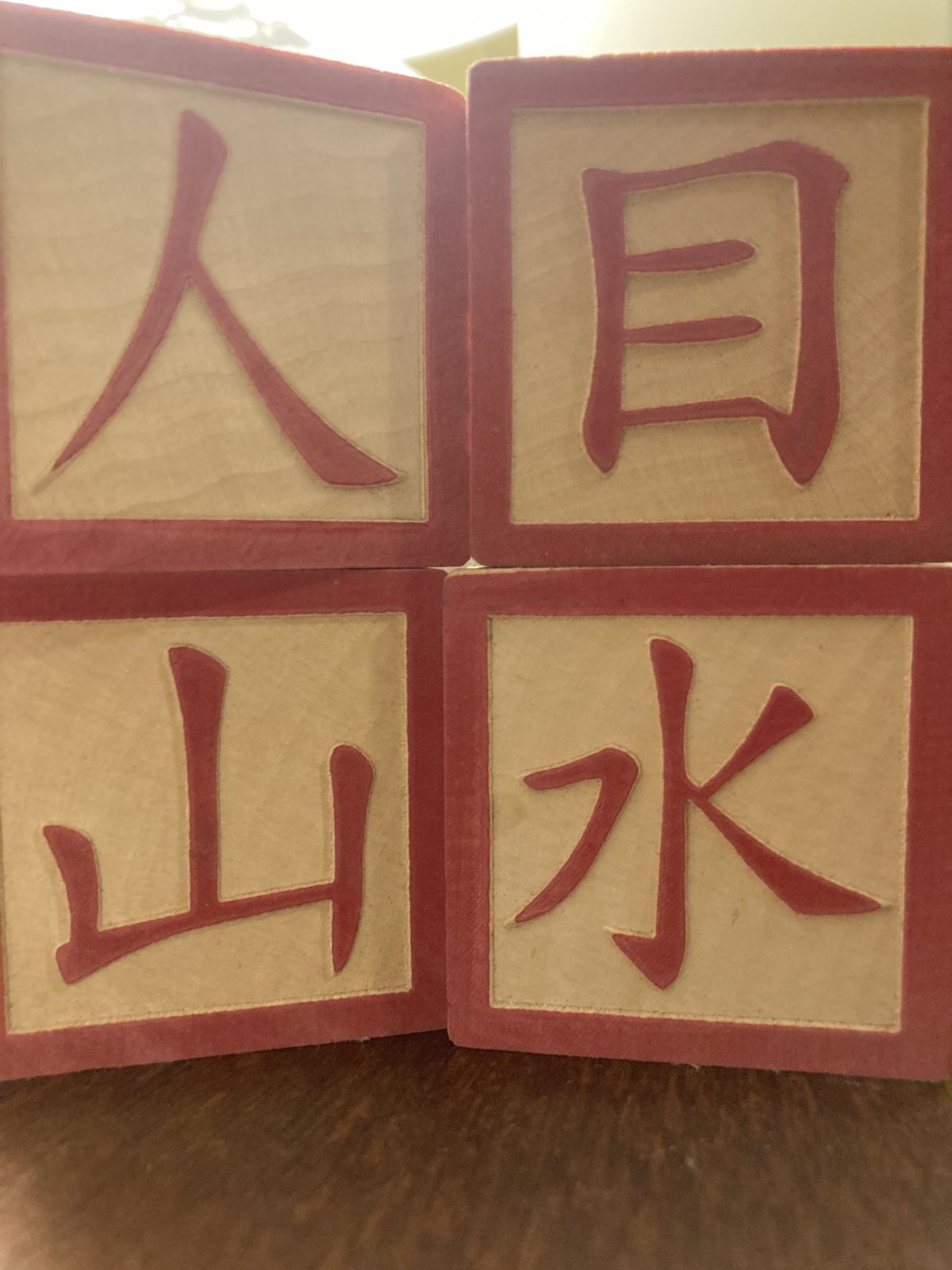
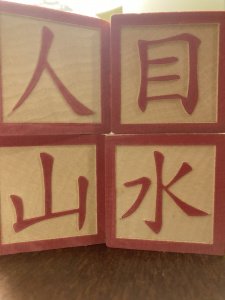 Writer’s Block
Writer’s Block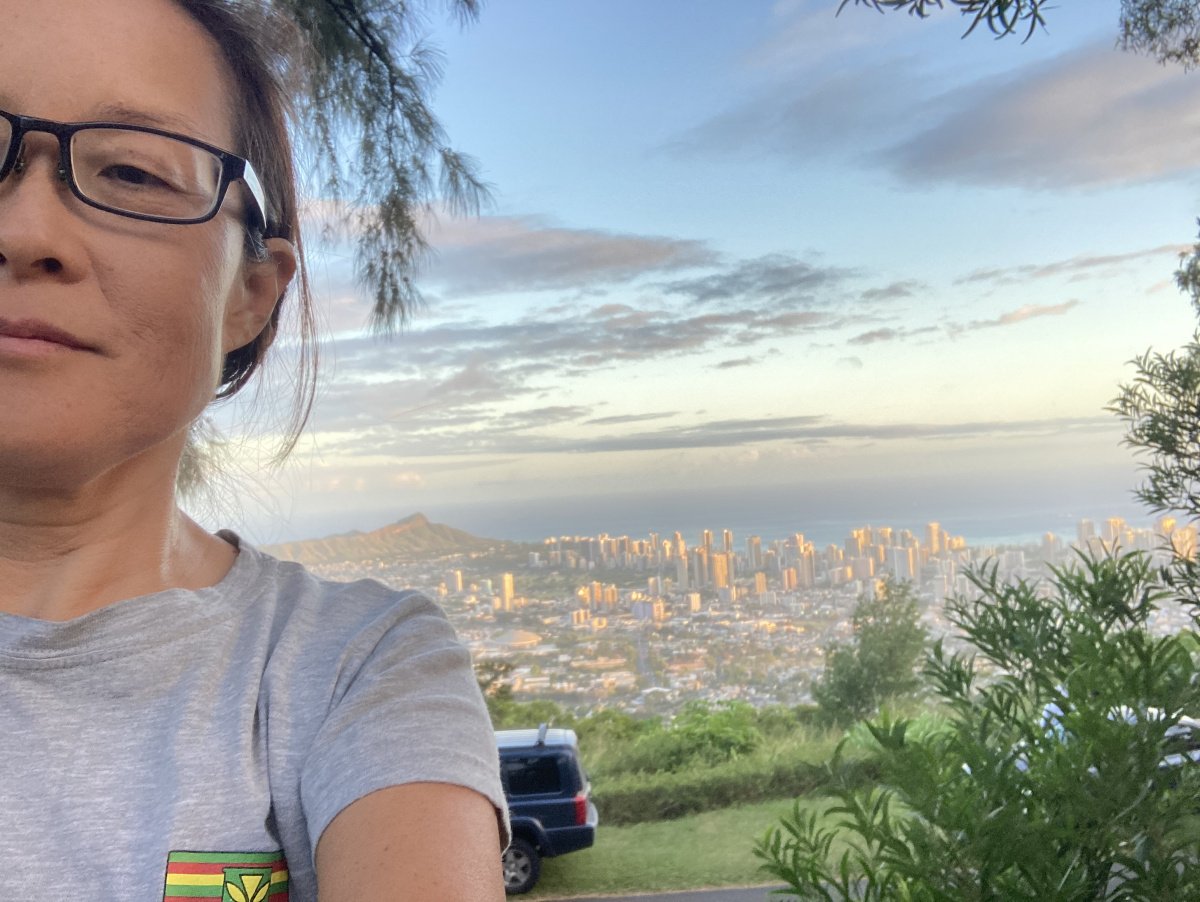
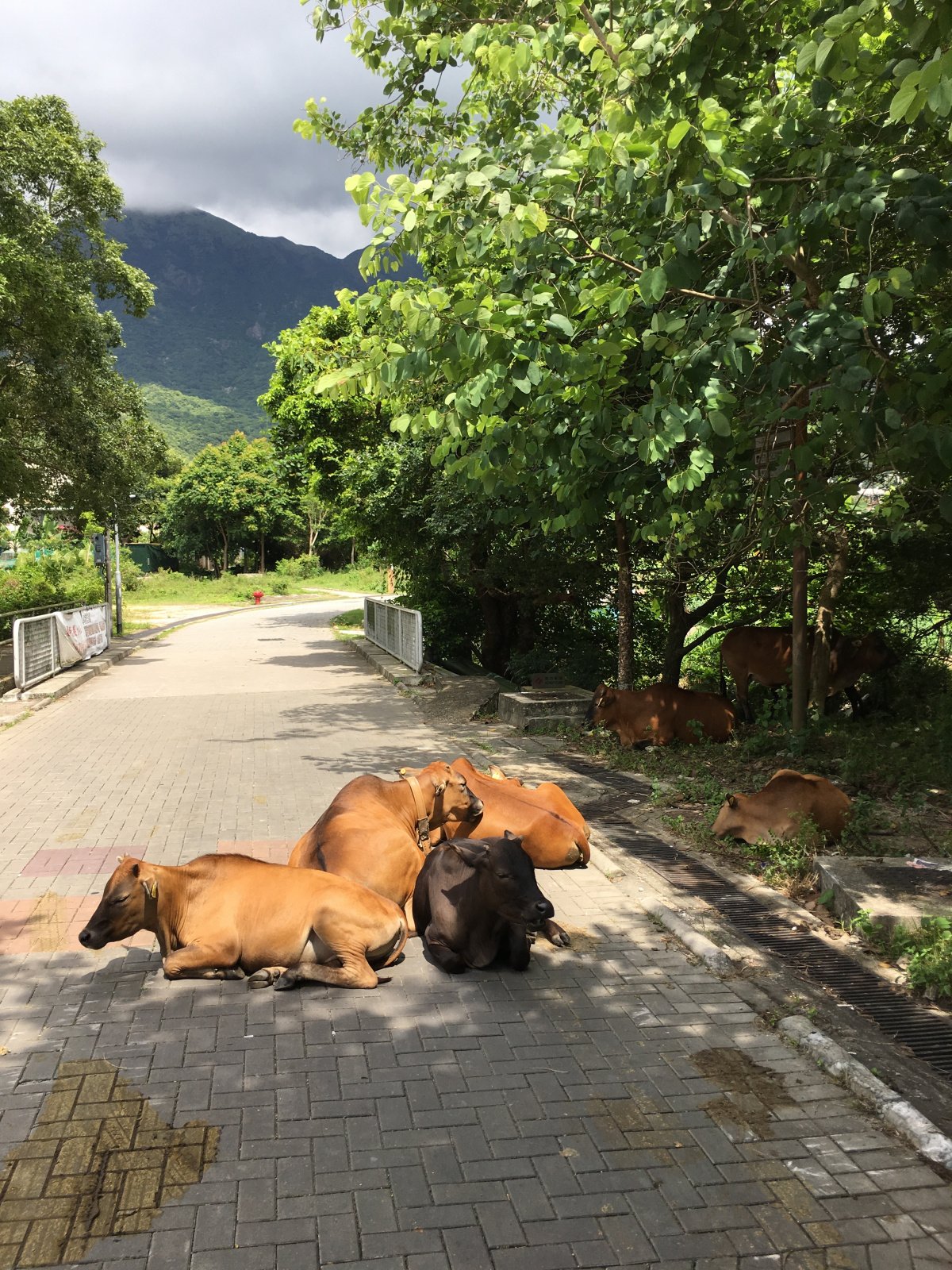
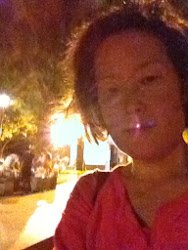 I began writing what would become “Passing in the Middle Kingdom”, an unpublished poetry manuscript I started the summer of 2008 when I moved to Mui Wo, Lantau, Hong Kong from Los Angeles. The manuscript was a finalist for the Wilder Prize and most of the pieces have been published in various drafts. It is a very clear document of the collapse of my marriage, the longing for clarity, the fatigue and joy of early motherhood, and the desire for home and belonging.
I began writing what would become “Passing in the Middle Kingdom”, an unpublished poetry manuscript I started the summer of 2008 when I moved to Mui Wo, Lantau, Hong Kong from Los Angeles. The manuscript was a finalist for the Wilder Prize and most of the pieces have been published in various drafts. It is a very clear document of the collapse of my marriage, the longing for clarity, the fatigue and joy of early motherhood, and the desire for home and belonging.